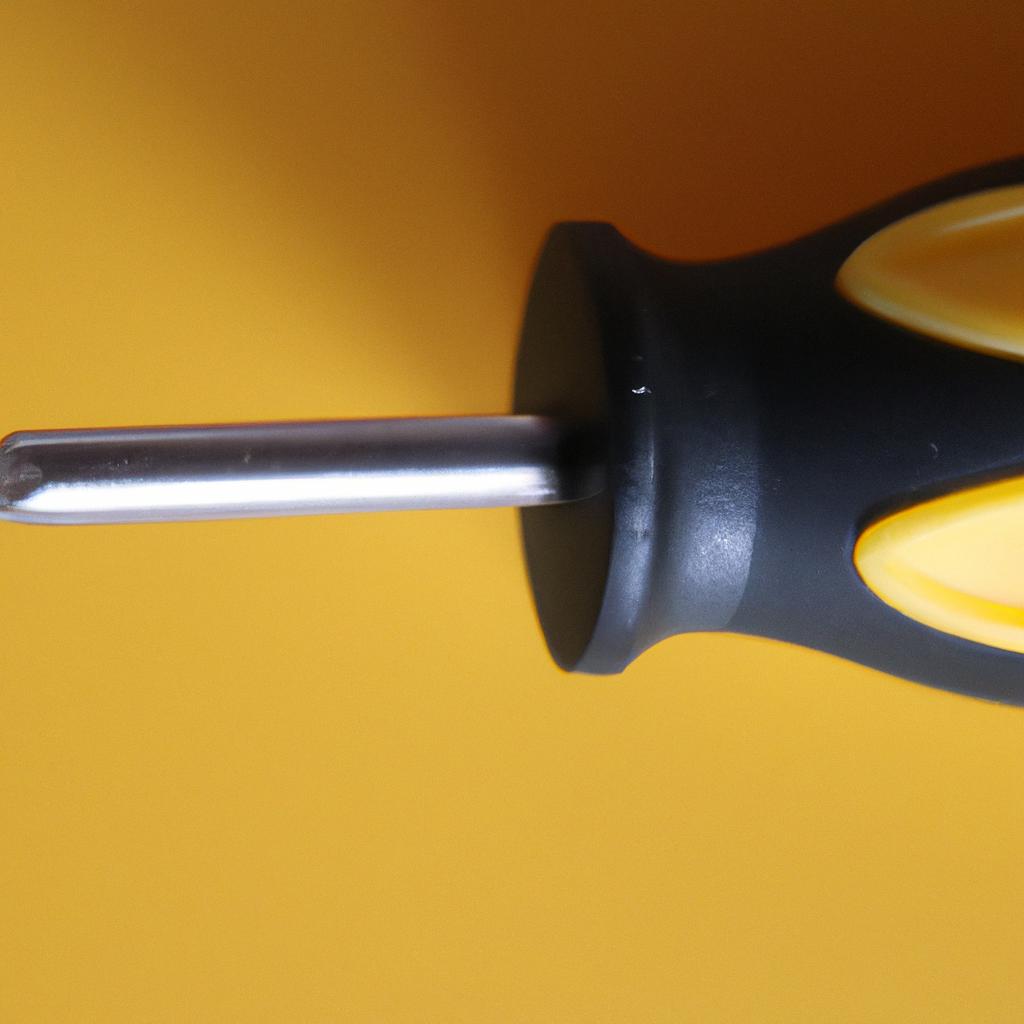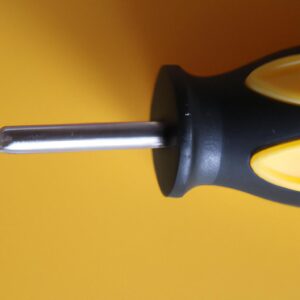Introduction to Appliance Maintenance
Daily household activities depend on the reliable operation of appliances such as refrigerators, stoves, dishwashers and washing machines. These devices play an important role in providing maximum convenience and comfort. To ensure that appliances remain running efficiently and effectively, it’s essential that they are well maintained on a regular basis.
This guide provides you with an overview of appliance maintenance and advice on how to extend the lifespan of your household devices. It covers topics such as understanding the basic maintenance of each appliance, addressing common problems, establishing a regular maintenance routine and more. By investing a bit of time and effort into maintaining the devices in your home, you can ensure that all your appliances will continue to work optimally for many years.
The types of household devices covered in this guide include: refrigerators, stoves, dishwashers, washing machines, dryers and air conditioners.
Understanding the Basic Maintenance of Each Appliance
Keeping household appliances in good working order is an essential part of maintaining a comfortable, safe and efficient home. Investing in the maintenance of your appliances will save you money in the long run as it can extend the life of them and prevent costly repairs. This section will explore the fundamentals of appliance maintenance and applicable best practices.
Before attempting any maintenance, it is important to have a basic understanding of how your appliances work and how to handle them safely. It’s also important to read through the manual that came with the appliance and follow the manufacturer’s instructions. Regularly cleaning and checking functional parts of the appliance such as gaskets, coolant lines, electrodes, and mufflers can help ensure they are in good working condition.
Another key aspect of appliance maintenance is keeping any mechanical or electrical components clean and lubricated. Without proper lubrication, these parts can become jammed or worn down prematurely. Additionally, it is important to make sure the appliance is receiving the right amount of electricity. Too little or too much can cause permanent damage to the functioning of any appliance.
Finally, it is also wise to use quality replacement parts when making repairs. While they may be more expensive than cheaper alternatives, their longer lifespan will save you from having to replace them again sooner than you hoped.
Addressing Common Problems with Each Appliance
It is important to be aware of potential problems that may arise with the household appliances you own. Familiarizing yourself with common issues can help you get ahead of them and save a lot of hassle and money in the long run. Here are some tips for identifying and addressing possible mechanical problems.
Check the Electrodes and Connections
Often times, the household appliances can suffer from faulty electrical connections or intermittent power cuts, which disrupt their normal functioning. In this case, one should check the electrodes and connections of the device, since any damage here could be causing the issue. If needed, replace any worn out parts and clean up any corrosion inside the appliance.
Check Vents and Filter for Blockages
Your household appliances may also be hindered by air flow blockages. These might arise due to clogged vents or dirty filters, making it harder for them to cool or warm up accordingly. As a precaution, regularly check for blockages in the vents and filter of the appliance to ensure its proper operation.
Check for Loose Parts and Wiring
When inspecting your household appliances, you should also make sure to check for any loose parts or wiring. Any kind of wear and tear in these areas could lead to short circuits that may damage the whole device. Thus, if you spot any loose parts, contact a repair professional to take care of the issue.
Tips to Make Your Maintenance Easier:
The process of maintaining your household appliances doesn’t have to be complicated or expensive. There are some simple and cost-effective tricks you can employ to streamline the maintenance process. Here are a few tips to get you started.
- Make sure to keep all of your appliance manuals and user guides in one easily accessible place. You never know when you may need to refer back to them for specific instructions.
- Be aware of the energy efficiency of your appliances. This will help you determine when it might be time to replace them with newer, more efficient models.
- Schedule regular maintenance checks at least once a year so any potential issues can be spotted and addressed before they become major problems.
- Check around the outside of your appliances for debris that could interfere with the inner workings. This includes dirt, dust, and pet fur.
- If you have an air conditioner or furnace, make sure that you change the filters regularly (every 3 months for optimal performance).
These simple tips can go a long way toward making the maintenance process easier for you while ensuring that your household appliances remain in top working order.
Establishing a Regular Maintenance Routine
When it comes to appliance maintenance, routine is key. Establishing an effective maintenance routine and adhering to it can help you maintain the lifespan of your household devices. A regular maintenance plan involves inspecting, cleaning, and inspecting again each of your appliances to ensure they are in proper working order.
The frequency of routine maintenance depends largely on the type of device and how often it is used. It is recommended that you inspect and clean them quarterly, meaning at least once every three months. Some appliances, such as stovetops and ovens, should be inspected more frequently, such as after every use or as part of weekly clean up.
In order to ensure you have an accurate maintenance routine for each appliance, be sure to read and follow the manufacturer’s instructions. Doing so will not only ensure your appliance is functioning properly, but can also save you time and money in replacing parts and calling repair technicians.
Once you have created a routine, be sure to record when you accomplish each task and keep a log of any repairs or replacements. This is important so that you can track the life of your device and be alerted when it is time for regular maintenance.
By taking extra steps to maintain your household appliances, you can significantly extend their life and reduce the need for expensive and time-consuming repairs.
Benefits of Investing in Expert Assistance
Regularly investing in professional maintenance services is one sure way to extend the lifespan of your household appliances. From technicians understanding the inner workings of each device, to having access to original parts, there are many advantages to hiring an expert.
With technicians on a job, you are less likely to be dealing with potential problems that come with DIY troubleshooting. This can include incorrect part replacements, overuse of certain components, and safety concerns. During their visits, technicians are effectively able to diagnose any issue, provide recommendations, determine the correct parts, and help eliminate wasted time and resources associated with guesswork.
Another advantage is access to authentic spare parts. This prevents equipment damage caused by incompatible parts. Unfortunately, not all third-party parts are compatible so it’s essential to confirm the manufacturer’s recommendation when making purchases. Technicians have the technical ability to determine whether the right parts are used, ensuring that your appliances are working safely and efficiently.
Finally, it’s worth mentioning that technicians can help you save money as they often come equipped with the right tools and knowledge to get a job done quickly. So if you’re looking for a cost-effective and reliable solution when dealing with your household appliances, then investing in expert assistance is the way to go.
Choosing the Right Parts for Your Appliances
Appliance maintenance can be a complex process, but having the right parts is essential to repairing and extending the lifespan of your household devices. Here are some tips to look out for when selecting the best spare parts for your appliances.
- Know your model numbers: Before you begin looking for spare parts, make sure you have your appliance’s model number available, as this will help you find the most suitable components. Checking manufacturers’ websites is a great place to start.
- Check the manufacturer’s specs: Different parts can be required based on the manufacturer specifications, so be sure to double-check before ordering anything.
- Research quality and reviews: High-quality parts will last much longer than cheaper options, so it is recommended to take your time researching and reading reviews from other customers. This will help you find the best and most long-lasting parts.
- Be wary of refurbished parts: Refurbished parts are generally found at a discounted price, so they may be appealing. However, when buying refurbished parts, understand that the continued functioning of the device is not guaranteed.
When it comes to appliance maintenance, selecting the correct parts is key to ensuring that your repairs go smoothly. By following the above advice, you will be able to choose the right parts for your household devices and extend their lifespan.
Conclusion
This guide has discussed the importance of appliance maintenance and how to extend the lifespan of your household devices. We have explored the fundamentals of appliance maintenance, tips to make the process easier, and the advantages of investing in expert assistance. By leveraging a regular maintenance routine and selecting the right parts for repairs, you can ensure that your appliances are optimally functioning and long-lasting. Appliance maintenance is not only cost-effective and time-saving, but it can also save much grief and inconvenience. Investing in quality maintenance can truly pay off!
comments: 0

